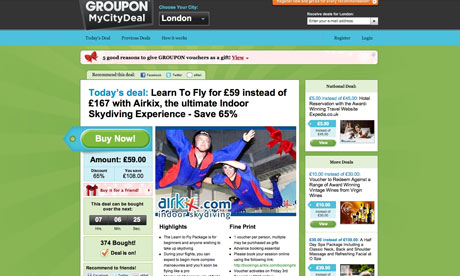Citigroup’s Efforts Pay Off, Treasury Sells Its Stake
Another day, another successful government stock offering.
Less than a month after the enormous General Motors IPO, the U.S. Treasury gave Citigroup (NYSE: C) its independence back by selling the last of its stake in the bank on Monday.
That’s great news for Citi which has been itching to operate on its own again, but even better news for taxpayers who thought they’d never get back the $45 billion in bailout money that was handed to Citi two years ago.
Not only will the government get its money back but the U.S. Treasury says Monday’s public offering should allow it to realize a profit of $12 billion on its overall investment.
The sale of 2.4 billion shares of Citi common stock which were priced at $4.35 a share brought in about $10.5 billion.
Executives at Citi including CEO Vikram Pandit have been working diligently to get the bank back on track. Much effort is exhausted on getting rid of whatever is still left in Citi Holdings- the unit that houses all of the bank’s unwanted assets from the financial crisis. The bank says it expects Citi Holdings to have less than $400 billion in assets by the end of year, or less than 20% of the bank’s total assets.
Much of the bank’s good news is occurring overseas. These days Citi’s strength is in its consumer banking units especially those in emerging markets-revenues in Latin America and Asia were up 13% and 7% in the third quarter respectively from a year ago.
Last month, Manuel Madina Mora Citi’s CEO of Consumer Banking for the Americas and Chairman of Citi’s Global Consumer Council said the bank operates in 120 of 150 emerging cities that represent 30% of world GDP. He added that Citi will focus on affluent households in those cities and also utilize its credit card for the mass affluent population in those cities.
In a note about Citi last month, analyst Dick Bove says:
“The history of Citigroup shows that when the company focuses on international retail consumer banking and improved technology it does well. When it diverges from this path to lend to countries, or make acquisitions with little complimentary characteristics it gets into a great deal of trouble.”
He goes on to say that the company is moving in the right direction and that “results should be very positive.”
Positive indeed. Since December 1, Citi shares are up nearly 6% to $4.45 on Monday’s close.. Just last week Oppenheimer analyst Chris Kotowski said the company was worth more than $5 a share-that’s a level the company’s shares haven’t reached in nearly two years.
In fact, Citi shares have outperformed most other major U.S. bank by a wide margin since September. Since September 1, Citi is up 20% while JPMorgan is up 10%, Morgan Stanley is up 4% and Bank of America is down over 6.6%.
It wasn’t long ago that Citi shares were trading under $1. Today though, Pandit and pals got their bank back from the government. The plan is the Treasury will never have to come back.











